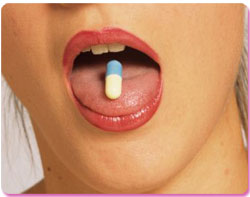Do you ever get confused with which hair supplements you should or shouldn’t be taking? Do you get recommendations from your friends or a new magazine article?
Supplements can be very helpful, but they need to be used correctly.
You take them for a few weeks and nothing really happens so you give up or try something else? This is a very common story that I hear in my clinic. If you had a heart problem would you ask a friend or take the advice form a magazine? Obviously not and while I am in no way suggesting that hair loss is a serious threat to life, it is vitally important to our psyche. So lets clear a few things up with supplements.
The truth is this:
There are some specific supplements which are VERY helpful to patients with Hair Loss and there are a lot of others with a bunch of “hype” and no science or legitimacy backing their use.
Today I want to show you what I consider to be the Best Supplements for Hair Loss, but more specifically… I like them.
These supplements are the same ones I use on my private patients and they have scientific evidence backing them.
Let’s look at the facts and the science so you can get on the right track to feeling better and not only treating your Hair loss but reverse it…
Not all Supplements are Created Equal
This should go without saying, but not all supplements are created equal.
Unlike the pharmaceutical industry, the supplement industry is not regulated very well.
As a result some supplement companies have included lower grade ingredients into their supplements which are less biologically active ingredients and in some cases do not even have the quantities that they claim on the package.
This can be frustrating for patients who don’t understand this.
They get cheap supplements from places and they don’t feel any different after taking them.
Then they feel like it’s a waste of time and money.
And it is.
Unless you get HIGH quality ingredients from reputable high quality brands.
When patients use HIGH quality supplements that are targeted to their nutritional deficiencies the results can be very impressive.
I see hundreds of medical reps trying to sell my clinic ‘wonder supplements’ so how do I choose ? Well, I use a combination of the following guide my judgement when I make supplement recommendations to my patients:
- Literary Studies (Meaning that these supplements have been shown or proven to actually help reverse disease)
- My own personal clinical experience (Meaning do the supplements actually work – many supplements show promise in testing and in certain studies but they fall short in clinical practice)
- What I’ve seen works (Including the opinions of other experts and what I’ve personally seen/used)
- What other experts use and recommend (With so many supplements it’s impossible to know and understand everything about them, but knowing what works with other patients and other providers is very helpful).
So, how do I choose? In most consultations I request a basic blood report. This is the starting point I say basic as Hair Loss sadly is not usually covered under medical insurance so patients are required to pay for them. These can be expensive so my first stop is to see what if any ( and there usually are)nutrient deficiencies.
Lets have a look at some:
Numero Uno
Ferritin
Ferritin is an indication of the amount of iron in storage in your body.
Low ferritin levels are often associated with symptoms such as fatigue, shortness of breath, inability to exercise and of course one of the main reasons for abnormal female hair loss.
Diagnosing and treating low ferritin is important because it can actually reverse these symptoms and improve quality of life and your hair.
In addition, low iron (and thus low ferritin) is an important cause of hair loss in pre menopausal women.
This is very important because many cases of hair loss are attributed to “genetics” and/or “thyroid” related problems when in reality they may be due to low iron levels.
Another study (of women of child bearing age without inflammation or other known conditions) showed that ferritin levels less than 80 ng/mL are strongly associated with telogen hair loss.
If you have a ferritin level less than 80 ng/mL and you are experiencing hair loss, then it would be worth considering iron supplementation (or at least discussing this option with your Trichologist).
If you are experiencing hair loss then proper evaluation of iron status and other nutrients are very important.
Ferritin is a marker of the iron stores in your body. And iron is responsible (and critical) to maintain energy levels, maintain thyroid function, promote proper hair growth and so much more.
That means managing your ferritin level becomes very important.
Another important factor that shouldn’t be overlooked is that most providers tend to ignore ferritin levels unless you have anemia.
You can have low ferritin levels and not be anemic. Because of this, many patients with the symptoms of low iron tend to be ignored by physicians unless it is also accompanied by a low hemoglobin (this is termed anemia, or iron deficiency anemia).
Inadequate or depleted iron storage is the most prevalent nutritional deficiency in women of menstruating age. Iron is lost predominantly through menstruation each month, and if a woman’s periods are excessively heavy or frequent she may drop her iron stores quite rapidly. Iron deficiency may also occur during pregnancy as a result of increased demands on the mother’s nutrient reserves by the developing infant.
Iron is central to healthy functioning of the human body because it’s the main constituent of haemoglobin – the oxygen-carrying protein inside red blood cells. Iron is also essential for many bio-chemical processes including the formation of many cytochrome iso-enzymes and certain respiratory enzymes.
A small but constant daily intake of iron is essential to maintain the quality & numbers in red blood cell production. Females 14-50 years of age require 15-18mg of iron per day, decreasing to about 8mg/day after menopause.
Early indicators of diminished iron levels are fatigue, dry skin and hair, or intolerance to cold. Scalp hair density will reduce; individual hair shafts become thinner in diameter, and (in brunettes) the natural hair colour may change to a reddish-brown.
Vitamin C enhances the absorption of supplemental iron; green leafy vegetables with the absorption dietary iron from animal protein (lean red meat).
#2. Zinc
Zinc happens to be one of the top 5 most common nutrient deficiencies that I see on a daily basis.
There is a good chance that your zinc levels are low and supplementing can be difficult.
Not all brands of Zinc are absorbed equally. Zinc bound to picolinic acid has been shown to have superior absorption when compared to other forms.
This is why I recommend Zinc in this form, having said that I have seen some improvement with Zinc bound to Citrate.
•Boosts T4 to T3 conversion
•Lowers inflammation and acts as an anti inflammatory
•Balances the immune system.Hair follicles are normally ‘immune response protected’ skin appendages. The consequences of conditions such as Alopecia areata result when the immune concessions against this tissue-specific autoimmune state are withdrawn.
•Reduces free radicals while acting as an anti-oxidant
How to use:
1 – 2 tablets per day
One AM and One PM
Take with food
#3. Probiotics and Prebiotics
Now Im a huge fan of probiotics but not just any probiotics.
Just like supplements, not all probiotics are created equal!
In my patients I prefer and recommend a combination of pre and probiotics.
This is because most Hair Loss patients have some degree of intestinal dysbiosis and poor nutrient absorption.
Why is it good for Hair health
If there is any inflammation, or other gut imbalance, then nutrient absorption will decrease.
That means that small changes in your gut can lead to changes in hair quality and speed of growth.
This is also the major reason that your gut can’t be ignored if you have Hair Loss.
How to use
- Take 2-3 per day
- Alternate taking with and without meals.

#4. Vitamin D3
Vitamin D is another one of the most common nutrient deficiencies that I see on a daily basis, surprisingly so living in the desert.
Unless patients are supplementing with it already,I almost always find that Vitamin D levels are low.
Many patients, even those that live in the UAE, wonder why their Vitamin D levels are so low.
In order to get adequate Vitamin D from sun exposure you need to meet the following conditions:
•Be out in the sun between the hours of noon and 2pm, when your shadow is smaller than you (the time of day with the most UVB rays)
•40% of your body must be uncovered
•There cannot be any clouds obstructing the sun (otherwise UVB rays will bounce off the clouds)
•You must NOT be wearing any sun screen (most sun screens block ALL of UVB rays)
Certainly living in the UAE most of these are not possible for obvious and differing reasons.
This is why I recommend that EVERY patient gets their Vitamin D levels checked and that they supplement with Vitamin D to achieve a blood level around 50 ng/ml.
However, avoid blindly take Vitamin D.
Please get your levels checked and base your dose off of those levels.
Why Vitamin D is good for Hair loss patients
It is estimated that around 1 billion people suffer from vitamin D deficiency.
And vitamin D is critical to several functions in the body:
•Involved in proper development of bone and muscle
•Regulates immune function
•Prevents onset and development of autoimmune disease
•Acts as a steroid pro-hormone
•Helps maintain calcium homeostasis in the body
•And these are functions NOT related to hair loss.
(Why isn’t every Doctor checking EVERY patient for Vitamin D deficiency?)
#5. Vitamin B
Vitamin B12 is very important for patients with Hair loss.
Thyroid hormone is required for proper stomach acid production and stomach acid is required for proper B12 absorption.
Low thyroid hormone = low stomach acid = high risk of developing vitamin B12 deficiency.
The B-vitamins are essential co-enzymes to maintaining mitochondrial ATP production. Compromised mitochondrial function leads to low metabolic (thyroid) activity. Thiamine (Vitamin B1), B12, Vitamin D and folic acid are synergistic to copper. Supplementing these nutrients where required helps restore body copper balance. Vitamin D metabolism is enhanced by copper.
In addition to the mechanism mentioned above patients with Hashimoto’s are at increased risk for developing the autoimmune condition of pernicious anemia.
This is another mechanism by which hypothyroid patients may be at risk for developing vitamin B12 deficiency.
Many patients may have so-called “normal” serum B12 levels but still experience the signs and symptoms of B12 deficiency that then improve with proper replacement therapy.
Replacing Vitamin B12 is very important because many of the symptoms of B12 deficiency may mimic symptoms of hypothyroidism.
# And Finally…….
High quality, deep sleep tends to be under rated in terms of its importance for overall health and hair health.
Low quality sleep will increase inflammatory levels, increase blood sugar levels, decrease the body’s ability to lose weight and overall decrease how quickly patients can get results.
Not only this but sleep plays an important role in regulating your immune system. Decreased sleep may cause an increased risk of TRIGGERING autoimmune disease.
In addition some studies show that lack of sleep leads to an increase in TSH and an increase in circulating levels of thyroid hormone.
Sleep reduces immune function AND thyroid function.
If your sleep is suffering then you absolutely need to focus on it and make it a PRIORITY.
It’s just as important (if not more important) than supplementing with hair supplements and topical treatments.